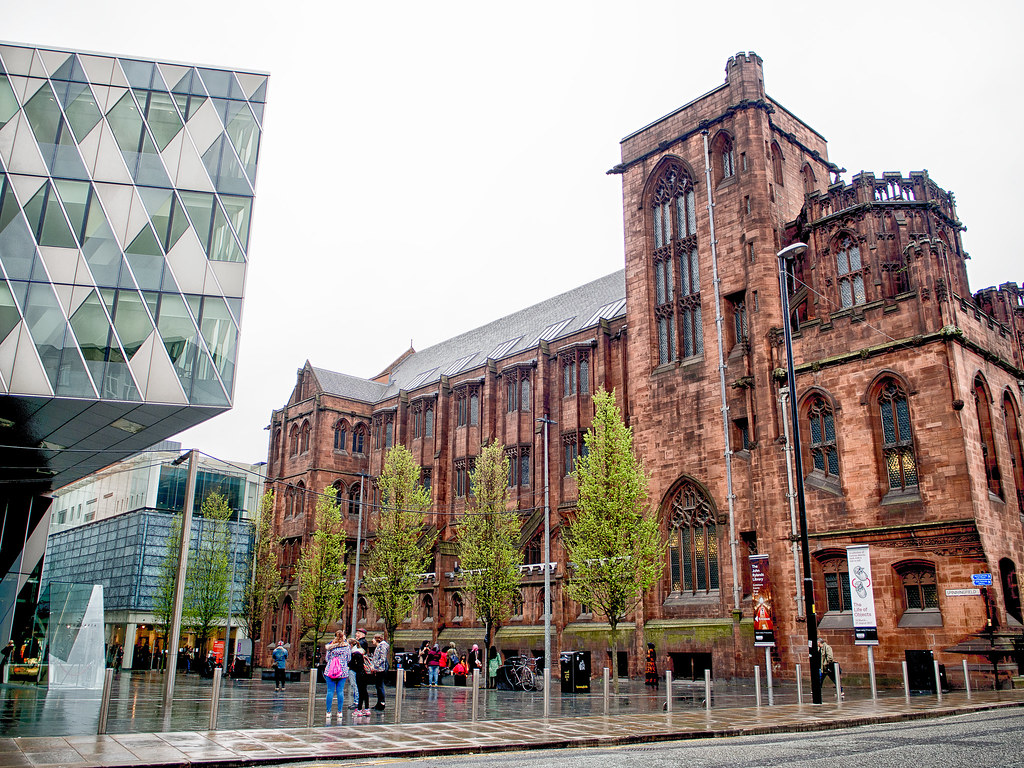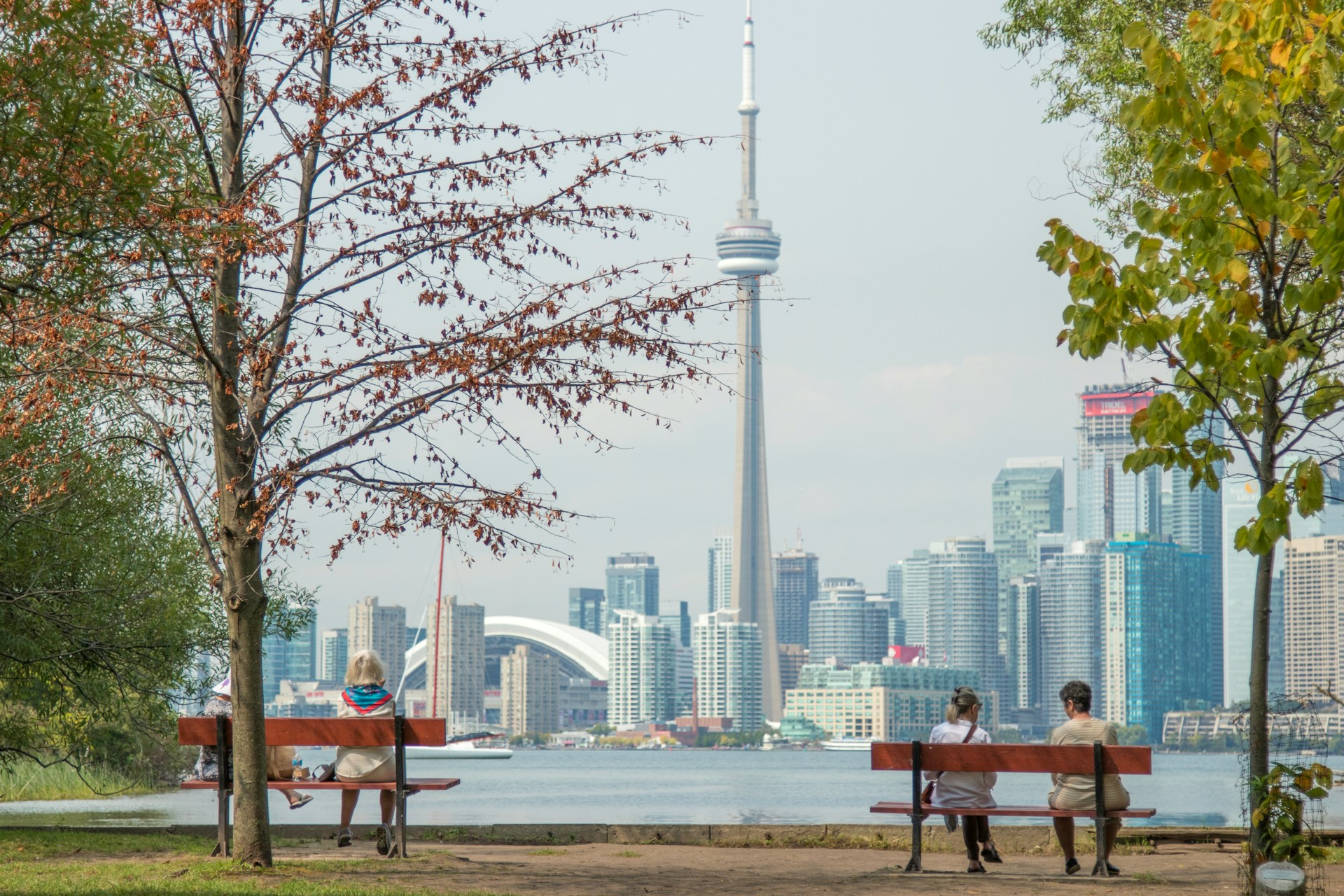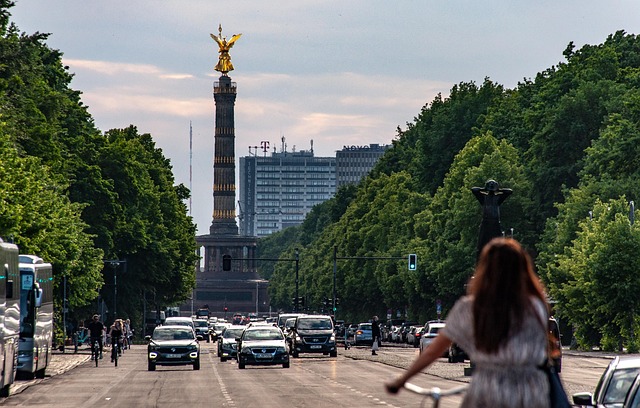Living in Berlin is exciting. Over the past decade, relocating to Berlin has been a top choice for expats who want to settle in Europe. The energy, diverse cultures, unique history, affordable cost of living, and vibrant arts scene add to its appeal and make it an attractive moving destination for people worldwide. Now, as an expat, you may need to collect some information about Berlin that will help you make a better decision. So this blog about Berlin analyzes different aspects you have to consider before moving to Berlin, including the quality of life, cost of living, housing, health care, education, public transportation, and more.
Why Is Living in Berlin a Good Choice?
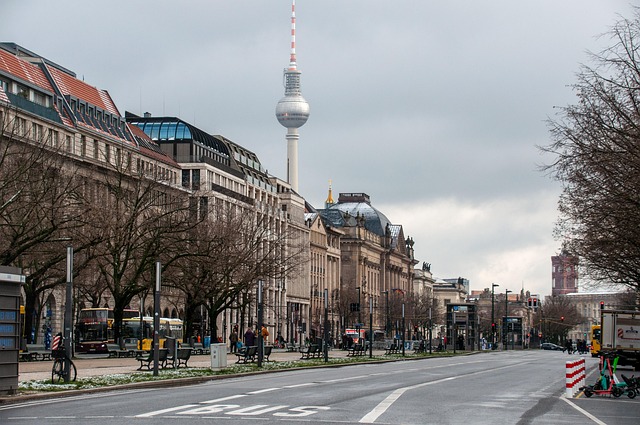
Berlin is the capital and largest city of Germany. It also has a large expatriate population. These expats come from countries such as Turkey, China and the United States. Berlin is home to a number of start-up companies and you can work there if you have the right technical skills. The city is also a research and development centre for companies such as Volkswagen, Pfizer and SAP. If one is good at science, then the demand for jobs and opportunities will be great.
While Berlin is perfect for expats who want tech jobs, it also welcomes artists. If there are opportunities in the creative field, you can apply for an artist visa that is only available in Berlin. Berlin is one of the best places to live in Germany, and it is a wise decision to live in Berlin if you have limited German language skills. Let’s see why living in Berlin is a good choice:
1. Relaxing and Stress-free Metropolis
Modern and unconventional, Berlin is widely considered one of the few most liberal cities in Europe. Known for its “Berliner Taste” (a playful, if not sung, reference to the city’s mysterious and magical atmosphere), Berlin has a liberal, cosmopolitan atmosphere where creative people and artists thrive. Immigrants and expats in Berlin can live here without fear of being judged or marginalized. Berlin is innovative and known for its modern architecture, vibrant nightlife, and art scene.
2. Large Expat Community
Almost a third of Berlin’s population consists of its expatriates. The world-famous clubs and nightlife in Berlin also attract countless expats, such as Berghain, Monkey Bar, Sisyphos, etc. Additionally, people from all over the world come to Berlin in search of better job opportunities, living conditions, or academic excellence at educational institutions. Expats in Berlin from Turkey, China, India, the US, and many other European countries make up a large community and will easily find each other. There are many groups, events, and online platforms designed and organized especially for expats in Berlin. Supermarkets and restaurants with regional specialities give you a taste of home even in Berlin!
3. Quality of Life in Berlin
Berlin boasts a high quality of life. Germany has one of the strongest healthcare systems in the world, so residents can expect to receive excellent medical care in Berlin. The well-established public education system provides more possibilities for families and international students. The value of work-life balance enables people to enjoy their own lives. Also, Berlin has many parks, like Tiergarten, Tempelhofer Feld. Access to green areas is important for residents’ well-being.
Price of Living in Berlin
The cost of living in Berlin must be your top concern if you’re moving here. The concrete living expenses vary greatly depending on different lifestyles and consumption habits. The good news is that when compared to other capitals and metropolises, Berlin has much cheaper living expenses! On average, the price of living in Berlin for a single expat is about €2,000 per month. The estimated amount includes all the common items one would spend money on: housing, groceries, transportation, internet, health care, ARD, and entertainment.
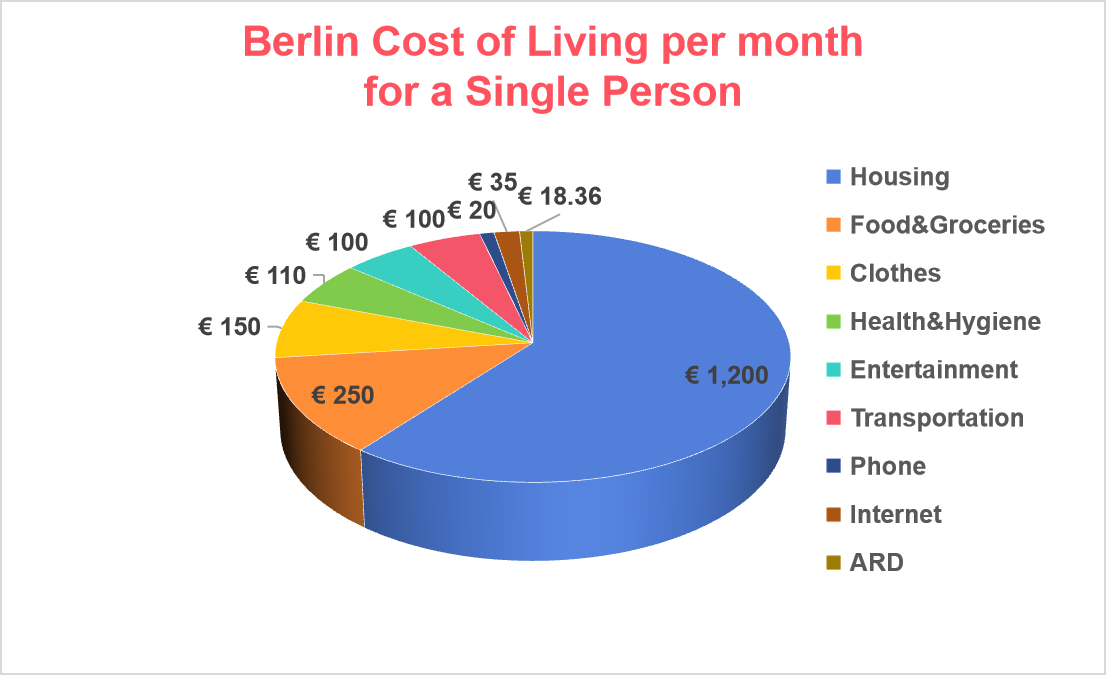
It’s worth noting that although Berlin is cheaper than many big cities in other countries, it’s still the capital of Germany. This means that living in Berlin requires managing your budget more wisely than living in other German cities. Compared to other parts of Germany, gasoline and food prices are particularly expensive in Berlin. The current severe inflation has also made the purchasing power of currency lower and lower. People living in Berlin generally report that they can buy fewer and fewer things in supermarkets for the same amount of money.
However, if you as an expat don’t have a lot of financial pressures to bear, such as mortgages or child-rearing expenses, you can still live freely in the city. Go to get some beer and sausages in Späti, sit on the grass in the park, enjoy the sunshine, and spend a relaxing day.
Moving to Berlin: Healthcare Is Essential

Germany has one of the best health insurance programmes in the world, which is mandated by the state. This means that health insurance covers almost the entire population. As the capital of Germany, Berlin has a high density of hospitals and specialist clinics, and most of the doctors are English speaking, making it easy for expats who are relocating to Berlin. Berlin’s health insurance system is divided into two types: Statutory health insurance (Gesetzliche Krankenversicherung, GKV) and private health insurance (Private Krankenversicherung, PKV), with the following characteristics:
GKV: GKV applies to those who earn less than €66,600 per year. The premium is approximately 14.6% of income, with the employer and employee each paying half. The GKV insurance covers basic medical services such as outpatient care, hospitalisation, medicines, preventive examinations, etc.
PKV: PKV is suitable for those who have high income, self-employed people, civil servants, and so on. You can choose coverage based on age, health status and personal choice. Premiums may be higher, but you can enjoy faster access and more comprehensive services, such as single room occupancy, advanced dental restoration and more.
Health insurance is mandatory for every legal resident and expat in Berlin. However, according to German government policy, the following kinds of people are only covered by GKV:
- Employees who earn less than €66,000 per year (as of 2023)
- Individuals who benefit from unemployment or alimony
- Students, interns and apprentices who carry out unpaid professional activities
- Pension recipients
- Disabled persons
- Artists and publicists (even self-employed artists)
- Individuals who have no other right to health insurance and are insured under the statutory health insurance
- Individuals who receive orphan pensions
- Agricultural and forestry entrepreneurs
Transportation in Berlin
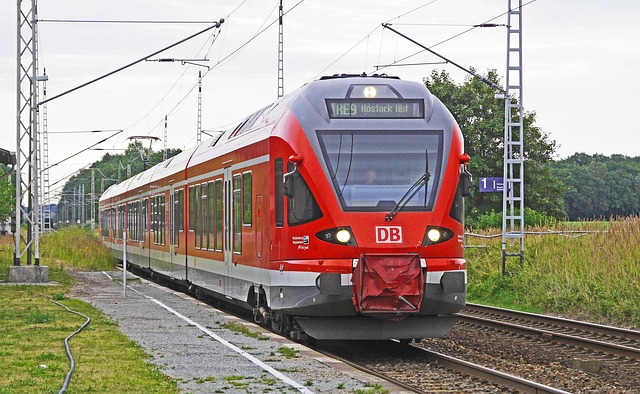
Expats will generally not need a car when living in Berlin. The city has an extensive, efficient, reliable and affordable public transportation system. Every part of the city is easily accessible, which is a great benefit in Berlin.
Berlin Main Train Stations
The most important train station in Berlin is of course Berlin Hauptbahnhof (Berlin Hbf, Berlin Central Station). All trains stop here, and this is also where you can take inter-city trains that are farther away. And Berlin Hbf is a bustling shopping center as well. Another station where the intercity train stops is Berlin Südkreuz (Berlin South Station). It is very convenient to get to the south of Berlin or the Berlin Zoo. You can decide whether to get off here according to your needs. Berlin Friedrichstraße Station is a hub for public transport in Berlin and a junction for the east-west and north-south subways.
Tariff Zones in Berlin
Berlin has three public transport districts: A, B and C.
- Zone A: The centre of Berlin. It includes all areas within the ring railway (Ringbahn) and all central neighbourhoods.
- Zone B: All areas outside the ring road but inside Berlin.
- Zone C: Outside Berlin. It includes parts of Brandenburg, such as Berlin-Brandenburg Airport, Potsdam, and Oranienburg.
Most places are in Zone A or Zone B, so you mostly need an AB ticket. If you go to the airport, you need an ABC ticket.
Public Transportation Options
The most common transport options are S-Bahn, U-Bahn, trams, and Bus. S-Bahn trains are yellow and red. They can reach almost everywhere in Berlin and some parts of Brandenburg. You can see an “S” at the beginning of S-Bahn line names and trains (S1, S2…), which means “Schnell” (Fast). U-Bahn means “Underground”, but the U-Bahn trains don’t always run underground. They’re yellow, and the lines start with a “U” (U1, U2…)
There are more than 20 tram lines in Berlin, labelled with the ‘Tram’ symbol. They mainly serve the eastern part of the city and complement the metro network. The Metrotram lines run more frequently than the regular trams. Buses often cover routes that are not covered by other means of public transport. At night, the night bus will replace U-Bahn and tram lines.
Relocating to Berlin: Best Places to Live

Housing is one of the most important parts when living in Berlin. Buying a house is not a common thing in Berlin. Only 17.4% of Berliners own a house and live in there. More people prefer renting a home. However, skyrocketing rents and the shortage of housing supply have put more and more tenants in a difficult situation of finding housing. In large German cities, such as Berlin, the competition in the rental market is particularly fierce. There, finding a new home can become a time-consuming “full-time job”. So if you plan to move to Berlin, please prepare to grab a home in advance.
If you’re a student and going to study in one of the universities and colleges in Berlin, it’s recommended to book your room on a reliable rental portal, such as uhomes.com. Bearing the session “Home for Global Students” in mind, uhomes.com keeps providing comfortable and affordable housing for all students. You can check the student accommodation in Berlin and pick your favorite one. Don’t worry, a professional consultant will be on your side through the whole process.
Basic Information about Renting in Berlin
Although renting is a war in Berlin, the government tries to protect renters’ rights. It has made it mandatory to sign legal tenancy agreements, control the scope of projects covered by rents, and provide long-term security to protect tenants’ rights and interests.
You must be clear about an important definition before you rent housing in Berlin and Germany: the “An” – “Anmeldung”. “Anmeldung” is the German word for “Registration” and is a legal prerequisite for residence in Germany. Legally, if you plan to live in Germany for more than 3 months, you must complete the Anmeldung within 2 weeks of moving to a new address in Germany. It’s not a difficult thing. Just make sure you have prepared all the required documents for registration, and apply for an appointment at your local Bürgeramt (Citizens’ office). Anmeldung is an essential step, so please do it as soon as possible.
As for the accommodation type you choose, there are some common types for your reference:
- Wohngemeinschaft (WG): Shared flats. Each person has his or her own bedroom in a suite, but the kitchen and bathroom are shared. This is the most common form of renting in Germany because it allows tenants to pay lower rent while maintaining their quality of life. This also allows tenants to live in some popular areas and well-located houses.
- 1-Zimmer-Wohnung: It is suitable for one single person. The room is a simple bedroom, sometimes with a sink. The bathroom and kitchen are in the hallway and are shared by people on the same floor. There will be a dedicated person responsible for cleaning the public areas.
- 1-Zimmer-Apartment: It is also a room for one person, but it is more advanced than a Wohnung. It is equivalent to a mini-suite. You don’t need to share the bathroom and kitchen with others, it is equipped in your own room. Of course, the price is relatively higher.
In addition, there are many unique concepts for renting a house in Germany, such as Warmmiete (Warm Rent) and Kaltmiete (Cold Rent). This may be a bit difficult for expats. After all, the language is already a difficult hurdle. For further detailed information, you can check the blog about how to find accommodation in Berlin.
Best Places to Live in Berlin

Now, to help you determine where to live, we have listed some of the best places to live in Berlin.
- Mitte: Mitte means “center” in German, so it is the true city center of Berlin, gathering Berlin’s political, commercial, educational, cultural and leisure centers. At the same time, Mitte is where the past, present and future come together. Impressive old buildings from the Wilhelminian period meet futuristic structures that cleverly exploit the possibilities of modern architecture. In recent years, Mitte has seen the fastest population growth, which has led to a significant increase in property prices. But you can still live in Berlin Mitte for a low price. In Moabit or Wedding, for example, you can buy reasonably priced properties and still be well connected to public transport.
- Friedrichshain-Kreuzberg: In this Berlin district, night becomes day. Countless clubs, pubs, and bars attract party-loving night owls and hipsters breathing the multicultural air of the city. This also has an impact on the real estate on offer. Alternative studios and shared flats are giving way to modern lofts and top-furnished flats in older buildings. This trend is continuing to rise.
- Charlottenburg-Wilmersdorf: This area is located in the central-western part of Berlin and is the most central area of the former West Berlin. Prime real estate, restaurants and bars, and a wide range of cultural activities make the district a top choice for many artists, restaurateurs, and intellectuals to settle down. The Kurfürstendamm is the most famous street in the area, which is filled with various international luxury brand flagship stores, high-end restaurants, high-end office buildings, etc.
- Pankow: It’s one of the most popular and largest districts in Berlin. Well-preserved old buildings are very attractive for families, couples or singles who want to get away from the stressful city life. In recent years, new galleries, cafés and bars have sprung up, making life here more attractive than ever.
- Neukölln: Neukölln is one of the trendiest districts in Berlin, thanks to its exciting nightlife and colourful diversity. In recent years, numerous young people have made their home here, and Neukölln has clearly benefited from this. Quiet alleys, small parks, and beer gardens invite you to take a deep breath – life in Berlin has a charmingly rustic feel.
- Spandau: If you prefer nature and quietness, then this Berlin district is perfect for you. Tranquil parks and lakes, historic buildings, and a pretty old town inspire young and old alike. With good transport links, the city centre is not too far away – so you certainly have plenty of reasons to settle here.
- Treptow-Köpenick: One of the greenest and most relaxing areas of Berlin. Thanks to the numerous lakes, parks and forests, the quality of life for its inhabitants is particularly high. With various restaurants, cafés and bars, you will never feel bored here. You can live in historic old building complexes or idyllic detached houses.
Education in Berlin
In Berlin, children enter secondary school after six years of primary education. Parents and teachers work together to select the right type of secondary school for their children. After a total of ten years of schooling, pupils are divided into general secondary schools (Hauptschule, 5 years), practical secondary schools (Realschule, 6 years), and gymnasiums (9 years). The purpose of the streaming is to make basic education more egalitarian so that pupils receive a complete education and only after completing lower secondary school do they have to choose between the “academic and vocational tracks”.
After graduating from high school, students can get university admission. The good news is that public universities in Berlin are free! Students only need to pay a small registration fee and miscellaneous fees to get a very high-quality education. This also makes Berlin extremely popular with international students from all over the world. Below are some of the most famous universities that enjoy a high reputation:
Humboldt University of Berlin (Humboldt-Universität zu Berlin): It is known as the “Mother of Modern Universities” and is the first university in the world to integrate scientific research and teaching. It’s perfectly located on the Unter den Linden boulevard in Berlin’s Mitte district.
Berlin Institute of Technology (Technische Universität Berlin): Located in Charlottenburg, it offers a wide range of engineering and technology courses and has outstanding research capabilities in engineering technology, natural sciences and other fields.
Free University of Berlin (Freie Universitäet Berlin): It is one of the largest comprehensive research universities in Germany and is located in the Berlin-Dahlem district.
Find a Job in Berlin

Finding a job in Berlin means that you can work in a dynamic, international and innovation-driven economy and realise your self-worth while having a good work-life balance. As Germany’s capital and a hub for startups, tech, and creative industries, Berlin attracts professionals in fields like IT, engineering, green energy, and digital media.
There are many different options for working in Berlin: multinationals (e.g. Siemens, SAP), thriving start-ups (e.g. N26, Delivery Hero), cultural institutions, as well as NGOs and research centres! Being able to speak German fluently can certainly be your advantage. However, many international companies operate in English, especially in the tech and creative fields. So don’t worry if you can’t speak German well.
When hunting for jobs in Berlin, it’s recommended to use platforms like Xing, LinkedIn, and StepStone, or visit local agencies like Agentur für Arbeit (Federal Employment Agency) and Welcome Centers for visa and integration support. The lower price of living in Berlin (compared to other EU capitals) and its vibrant lifestyle add to its appeal, though competition can be fierce in popular industries.
If you are not a citizen of the European Union, the European Economic Area (EEA) or Switzerland, you need a residence permit to work in Germany. But Germany’s Blue Card program simplifies entry for high-skilled professionals. So you can obtain a work visa or blue card. There may be minimum wage or educational requirements.
Conclusion: Living in Berlin - the Undefined City
Berlin is a city of paradoxes and fascination, rich in historical memory but also in avant-garde creativity. It is a city where you can stroll through the civilised corridors of Museum Island and the next moment step into the sound and light of an underground club. You can enjoy efficient and convenient public services and feel the pulse of a free and uninhibited metropolis on the streets and alleys. Despite the challenges posed by high rents and winter blues, Berlin continues to attract dreamers from all over the world with its inclusivity, cultural vibrancy, and relatively affordable cost of living. Whether you’re looking for professional development, artistic inspiration, or simply craving an “undefined” lifestyle, Berlin offers a place to take root – imperfect, but always real, and a place to explore and reconnect with life’s possibilities.
If you’re thinking about studying in Germany, it’s crucial to find the right student accommodation. That’s where uhomes.com comes in. It’s a reliable platform that helps students like you find the perfect place to live in Berlin, Munich, Frankfurt am Main, Hamburg, Heidelberg and many other cities. So far, they’ve helped more than 55,000 students successfully find their dream homes.

FAQ
Is Berlin a good place for expats?
Yes, Berlin is a great city to live for expats. Berlin has a vibrant culture, affordable living expenses, and a thriving international community. Moreover, Berlin offers rich arts, diverse neighborhoods, efficient public transport, abundant green spaces, and universal healthcare. With its creative energy and English-friendly environment, Berlin attracts global residents moving here.
Can I live in Berlin and only speak English?
Yes, you can live in Berlin speaking only English, especially in international and expat-friendly environments. Public services like transport apps, museums, and some government offices also cater to English speakers. However, learning basic German is advisable for expats to better integrate the local surroundings.
Is Germany friendly to foreigners?
Yes, Berlin is known for its high internationalization and inclusiveness, and is particularly friendly to foreigners. English is widely used in the workplace, social and service industries. Diverse communities (such as Kreuzberg and Neukölln) bring together global culture with an active art and entrepreneurial atmosphere. The open social attitude, rich international community and relatively relaxed living environment make it a popular choice for global immigrants to integrate into Europe.
Is it expensive to live in Berlin?
The cost of living in Berlin is lower than in other major European cities (such as London and Paris). The average cost for a single person is about €2,000 per month, with rent accounting for a large proportion (about €700-€1,200 for a one-room apartment), but public transportation (€49 monthly ticket) and daily consumption are relatively affordable. If you accept sharing a flat and eat out less, you can save more. Although rents have risen in recent years, Berlin is still known as a “high cost-effective” city, balancing cultural vitality and affordable living expenses.
